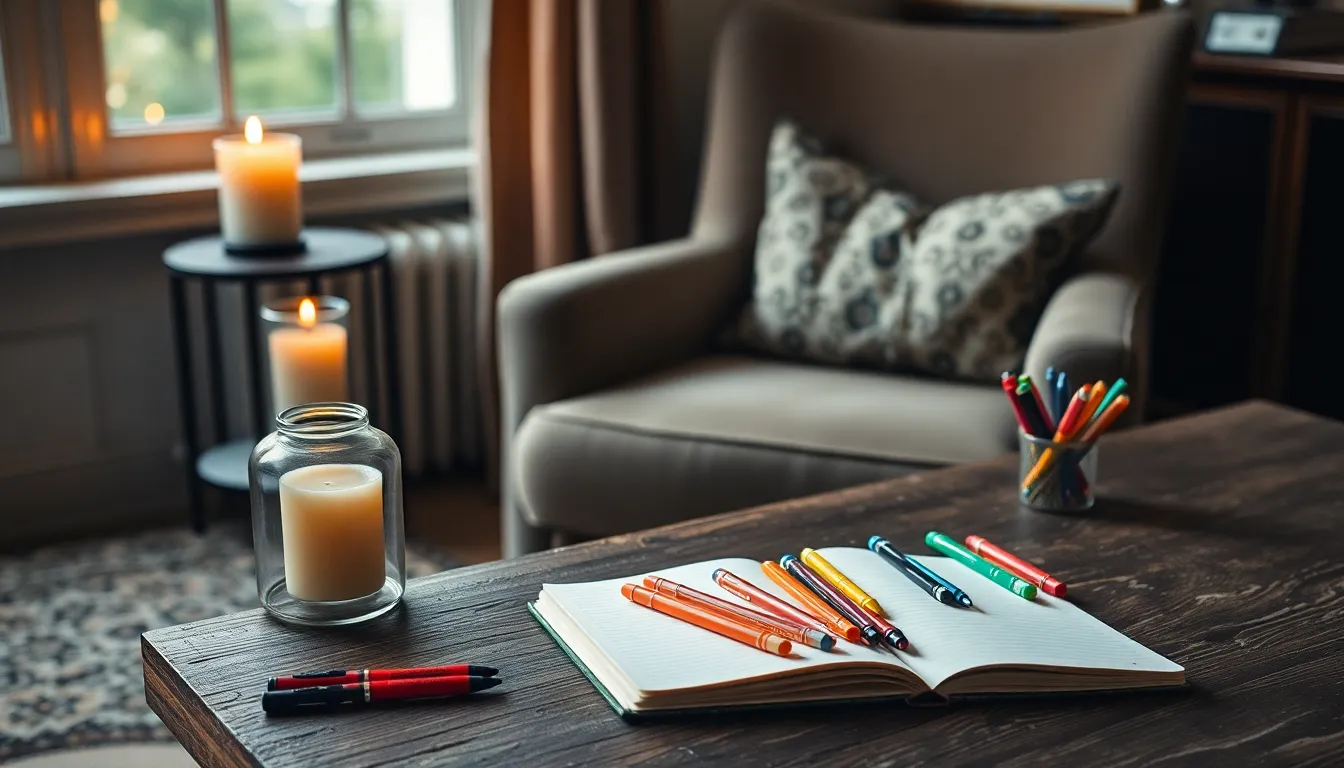Table of Contents
ToggleIn a world buzzing with distractions, finding a moment of peace can feel like searching for a needle in a haystack. Enter mindful journaling, the art of putting pen to paper and letting your thoughts flow freely. It’s like a spa day for your brain—without the pricey cucumber slices! This practice not only helps clear mental clutter but also encourages self-reflection and emotional growth.
Imagine transforming your chaotic thoughts into organized insights, all while enjoying the therapeutic benefits of writing. Mindful journaling isn’t just for the poets or philosophers; it’s for anyone looking to add a sprinkle of clarity to their daily routine. So grab that notebook and let’s dive into the world of mindful journaling, where every word is a step toward a calmer, more centered you.
What Is Mindful Journaling?
Mindful journaling serves as a practical tool for clarity and self-discovery. This approach encourages individuals to engage with their thoughts and feelings in a structured yet flexible manner, fostering emotional well-being.
Definition and Purpose
Mindful journaling involves writing with intention and attention. It encourages individuals to reflect on experiences and emotions without judgment. This practice invites a deeper understanding of oneself and promotes self-awareness. Individuals often use mindful journaling to release pent-up thoughts and feelings. Rather than focusing on grammar or style, the emphasis lies on honesty and authenticity. This form of journaling aids in processing complex emotions, enhancing one’s ability to cope with stress.
Benefits of Mindful Journaling
Mindful journaling offers numerous psychological benefits. It reduces anxiety by providing an outlet for feelings. Regular practice can lead to improved emotional regulation and clarity of thought. Mindful journaling also fosters creativity, encouraging innovative thinking. Other advantages include better focus and enhanced problem-solving skills. Individuals often experience increased compassion for themselves and others through this reflective process. Those who engage in mindful journaling typically report a greater sense of peace and an improved outlook on life.
Getting Started with Mindful Journaling

Mindful journaling begins with a few simple steps and supplies. Engaging with this practice can enhance self-awareness and clarity.
Essential Supplies
Not much is needed to start mindful journaling. A notebook, whether blank or lined, provides a space for thoughts. Any pen or pencil allows for a personal touch. Some individuals prefer colored pens to express themselves creatively. A calming environment enhances the experience, so consider adding items such as a candle or an essential oil diffuser. Choose supplies that resonate to foster a genuine connection with the practice.
Setting Up Your Space
Creating an inviting and tranquil space is vital. Select a quiet location free from distractions. Soft lighting can create a soothing atmosphere, while a comfortable chair supports relaxation. Placing a few personal items nearby encourages introspection. Set aside a regular time to journal, which establishes a routine. Such practices help in building a mindful habit, making the journaling experience more meaningful.
Techniques for Effective Mindful Journaling
Mindful journaling can become more impactful with specific techniques. Utilizing prompts and integrating meditation into the practice enhances overall mindfulness.
Prompts to Enhance Mindfulness
Incorporate thought-provoking prompts to stimulate deeper reflection. Consider questions such as, “What emotions am I experiencing right now?” or “What am I grateful for today?” These inquiries facilitate awareness of thoughts and feelings. Explore themes like personal growth or daily highlights to foster insight. Revisit previous entries occasionally. This practice helps individuals see progress over time.
Combining Meditation and Journaling
Merge meditation and journaling for a comprehensive mindful experience. Start by meditating for a few minutes to center the mind and cultivate presence. Following meditation, transition into journaling. This sequence often leads to clearer thoughts and deeper self-exploration. Write without constraints during this time to capture spontaneous insights. Fostering this combination strengthens emotional clarity and enriches the journaling process.
Common Challenges and Solutions
Mindful journaling presents challenges that can hinder progress. Recognizing these obstacles and their solutions enhances the effectiveness of the practice.
Writer’s Block
Writer’s block often occurs during mindful journaling. This challenge can arise from the pressure to write perfectly or fear of facing emotions. One effective solution involves using specific prompts that guide writing while sparking creativity. For example, asking oneself, “What am I grateful for today?” simplifies the process. Another approach focuses on free writing; allowing thoughts to flow without restriction can help break the block. Embracing imperfections promotes authenticity, encouraging deeper self-exploration.
Consistency Issues
Consistency in journaling can pose difficulties. Many individuals struggle to maintain regularity due to busy schedules or lack of motivation. Setting a specific time each day, even if it’s only five minutes, builds a routine that fosters commitment. Developing a reminder system, like using phone alerts or calendar notifications, supports adherence to journaling goals. Creating a welcoming space encourages engagement, making the practice more inviting. Emphasizing flexibility allows for adjustments without discouragement, ensuring mindful journaling becomes a sustainable habit.
Mindful journaling offers a unique pathway to self-discovery and emotional well-being. By engaging in this practice, individuals can transform their chaotic thoughts into meaningful insights. The benefits extend beyond clarity and peace; they foster creativity and compassion as well.
Creating a dedicated journaling space and establishing a routine enhances the experience. Embracing flexibility allows for personal growth and adaptation over time. As individuals explore their thoughts and emotions without judgment, they cultivate a deeper understanding of themselves.
Incorporating mindful journaling into daily life can lead to profound changes. It’s a simple yet effective tool for achieving a more centered and peaceful existence.








